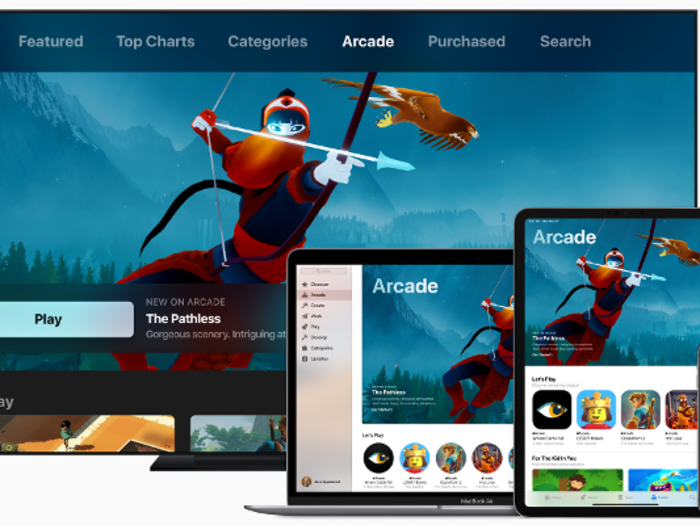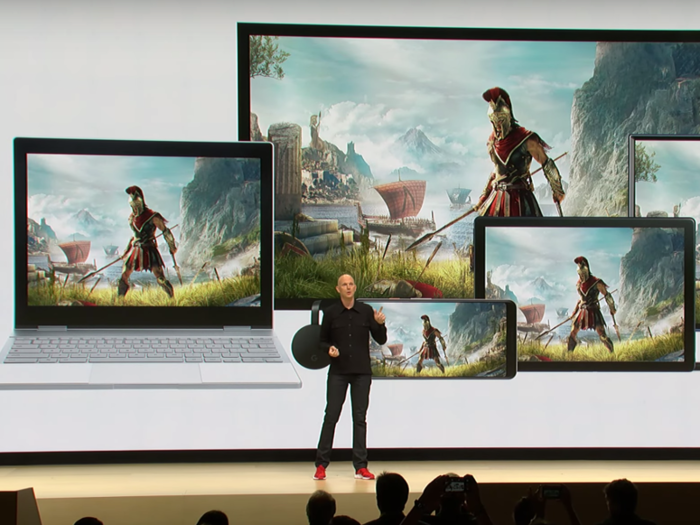- Home
- slideshows
- miscellaneous
- Apple and Google are going to war over the future of gaming as the entire industry goes through a radical transformation
Apple and Google are going to war over the future of gaming as the entire industry goes through a radical transformation
Mobile gaming has changed the playing field

Apple Arcade offers the best of both worlds at a low price

For $5 per month, the Apple Arcade subscription will allow players to play more than 100 games across multiple devices, including the iPhone, Mac, and Apple TV. Apple Arcade gives Apple a more direct way to monetize the millions of gamers using Apple devices, but also serves as a form of curation that could help elevate the iPhone as a gaming device.
Apple Arcade games will have no in-game ads or microtransactions, two of the most common business models for mobile games. While those methods have seen success, ad services that rely on personal data and microtransactions that allow excessive spending have also been common points of controversy for the mobile market.
Subscribers won't be able to play most of the premium games coming to the PlayStation, Xbox or Switch, but Apple company has hired developers to create new and exclusive titles specifically for Apple Arcade. These games are designed for all Apple devices with controller support in mind, offering more freedom than most mobile titles. Earlier this year The Wall Street Journal reported that Apple had invested as much as $500 million in Apple Arcade's launch.
While Apple is unlikely to see an immediate return on that investment, Apple Arcade will join a stable of services designed to keep customers committed to the iPhone and other Apple products for years to come.
Other companies are offering subscriptions too, but they don't have the same resources

Video game publishers like Electronic Arts and Ubisoft have their own monthly subscription services with a comparable number of games, but they lack two key advantages that Apple Arcade will rely on — tons of capital and a captive audience.
"In the coming games market, the core metric will be engagement," SuperData cofounder Joost van Dreunen said in an interview. "Consequently, first-party content will serve as a loss leader to attract and retain players."
For third-party content providers, however, this is a far more risky proposition because, among other things, they run the risk of overvaluing their long tail. In fairness, how many people are really going to sign up for EA's service to play FIFA 2009?"
Stadia teases a future without consoles

Google's new streaming platform Stadia will circumvent the struggle between consoles and mobile devices with brand new cloud gaming technology. Stadia uses a powerful computer to stream games directly to the player, whether they're using a computer, smartphone, or Chromecast device on their TV.
While Microsoft, Nvidia, and Electronic Arts have teased their own cloud gaming services, Google is confident enough to launch Stadia in November launch. Google says the service will be capable of streaming up to 8K resolution, and from our own tests, the service feels comparable to playing from a PlayStation or Xbox console.
If successful, Stadia could prove that expensive consoles are no longer necessary. However, because Stadia still requires players to buy premium games for the same price as traditional consoles, it doesn't offer many advantages to hardcore gamers.
Fresh competition will lead to rapid changes within the gaming industry

Though Apple and Google are bringing fresh competition, it'll be some time before Apple Arcade or Stadia can truly disrupt the video game industry. However, their willingness to invest in new technology and business models will help propel the industry forward as companies like Microsoft, Sony, Nvidia, and Electronic Arts work to meet the changing demands of a global audience.
Popular Right Now
Advertisement